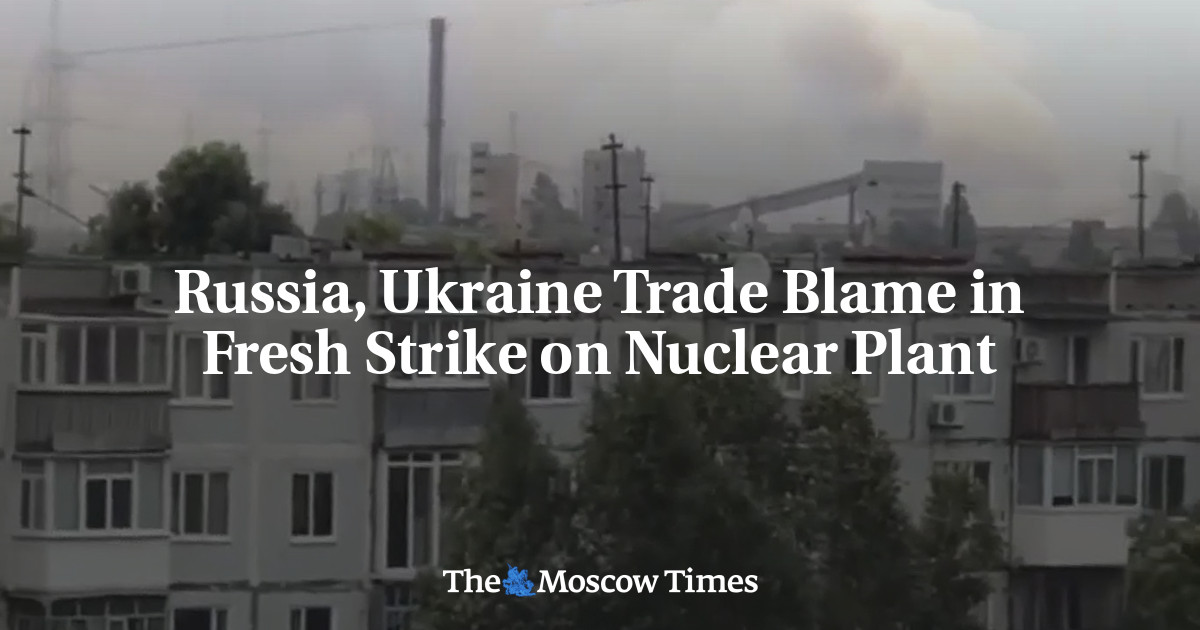
Russia and Ukraine accused each other on Thursday of shelling the Zaporizhzhia nuclear plant in Russian-controlled southern Ukraine ahead of an emergency meeting of the UN Security Council to address global concerns over the facility.
Ukrainian forces “once again struck the Zaporizhzhia nuclear power plant,” Vladimir Rogov, a member of the Moscow-installed regional administration, said on the Telegram messaging app.
He alleged that Ukraine was trying to strike at concrete storage facilities at the nuclear power plant, where thousands of tons of radioactive waste are stored.
Rogov also posted a video of the alleged strikes and said radiation levels around the nuclear plant were “normal.”
Ukrainian nuclear agency Energoatom said in a statement that “the Russians shelled the Zaporizhzhia nuclear power plant again.”
Neither side reported casualties.
The latest reported strike comes a day after Ukraine accused Russia of carrying out rocket strikes that killed 14 civilians in areas near the nuclear power plant.
Most of the casualties were in the town of Marganets, just across the Dnipro River from the Zaporizhzhia nuclear power plant, Europe’s biggest.
Regional council head Mykola Lukashuk said the strikes had hit a local power line, leaving thousands of people without electricity.
Ukraine and Russia have repeatedly accused each other of shelling around the plant in recent days.
Ukraine says Russia has stationed hundreds of troops and stored ammunition at the facility since taking it over on March 4, shortly after starting its invasion.
The tensions have revived memories of the 1986 Chernobyl nuclear disaster in Soviet Ukraine, which killed hundreds of people and spread radioactive contamination over much of Europe.
Earlier Thursday, UN Secretary-General Antonio Guterres warned that the hostilities could lead to “disaster” and reiterated a call for forces “to cease immediately” all military activity near the plant.
“Regrettably, instead of de-escalation, over the past several days there have been reports of further deeply worrying incidents that could, if they continue, lead to disaster,” Guterres said in a statement.
AFP contributed reporting.